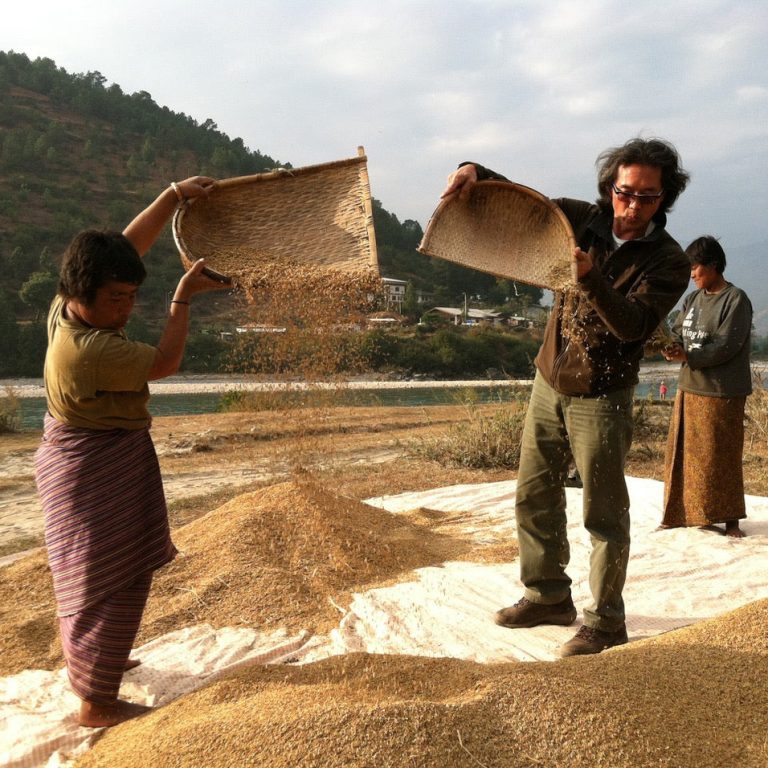
In 1995 Lotus Foods began importing black rice, calling it Forbidden Rice® after the Forbidden City, the Chinese Imperial palace. They wanted to share their love affair with heirloom rice with American consumers.
If they loved the exciting colors and tastes of rice from around the world as much as they did, they could help preserve rice biodiversity, increase farm incomes, and improve sustainability. It worked!
Today Their supplier community brings you the highest quality organic rice and rice noodles, while promoting human and environmental welfare.
Lotus Foods is a certified B Corp (Benefit Corporation) meaning they are committed to using their business for social and environmental change.
Product Feature: Organic White Jasmine Rice
Organic White Jasmine Rice is an aromatic long grain rice grown on family farms in Cambodia and Thailand. This premium variety of Jasmine rice is called Phka Malis, which in Khmer language means beautiful garland of flowers because of its delicate floral aroma. It has a soft, slightly sticky texture and fast cooking time.
Grown using More Crop Per Drop® farming practices (SRI) so farmers harvest more rice using less water and no agrochemicals while reducing methane off-gassing and physical labor for women.
Why They Are Committed
Rice sustains half the world’s population. Most is grown on small family farms. But producing can be hard on people and the environment.
How They Make it Happen
Sourcing
They source rice from smallholder farmers, giving them access to international markets.
Premium Pricing
They pay organic and Fair Trade premiums to increase incomes and attract the next generation.
Their Fair Trade premiums improve incomes and the resilience of rural communities. Their Tricolor Blend Rice from Indonesia was the first rice ever to be certified as Fair for Life, the most rigorous fair trade standard for benefiting people and their environment.
In Cambodia, between 2015 and 2020, social development premiums have been invested in a community coop, water retention ponds, a learning center, a community rice mill, and worker housing.
Community Development
They help fund local improvement projects and job growth with Fair Trade social premiums.
Regenerative
They promote organic and regenerative More Crop Per Drop® to restore natural resources, slow climate change.
Innovative Products
They strive to make healthy rice-based products more accessible and enable more farmers to benefit.
Advocacy
They advocate for a more just, equitable food system together with like-minded brands and partners.
More Crop Per Drop ®
CONVENTIONAL
21-60 days old seedlings planted randomly in clumps of up to 5 seedlings
MORE CROP PER DROP®
8-15 days old seedlings planted in rows at wide spacing; 1 plant per hole
BENEFIT:
Less transplant shock and competition among plants promotes growth.
Article and Information from: https://www.lotusfoods.com/pages/our-story